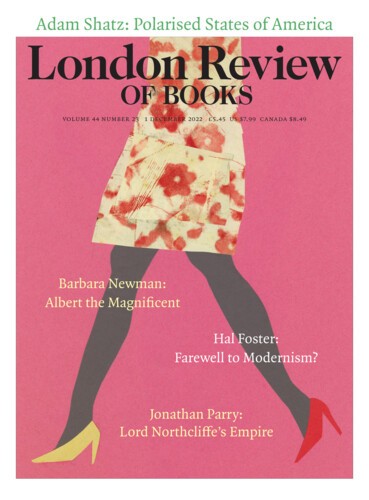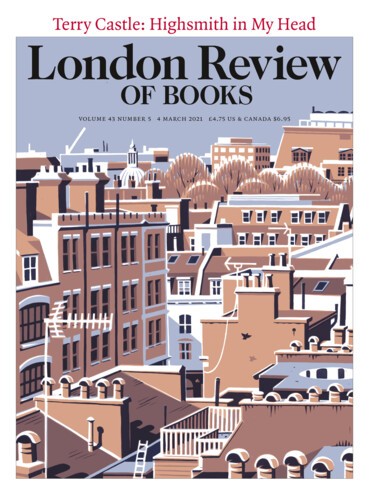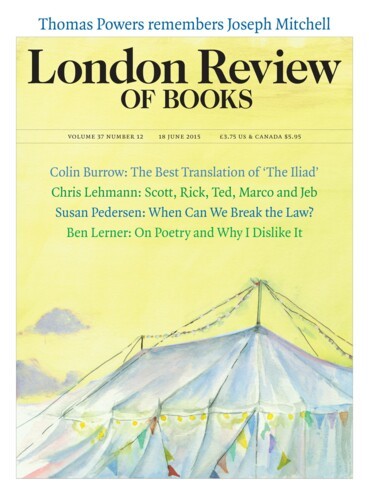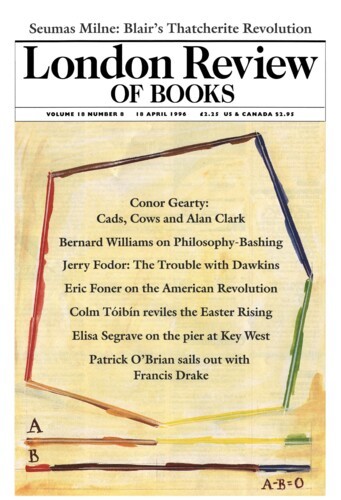Galen Strawson
Galen Strawson’s Things That Bother Me will be published this month.
The Coo Situation
4 March 2021
Do we have a policy?
8 March 2018
Easy Peasy
17 June 2015
Mistakes
18 April 1996
Pieces about Galen Strawson in the LRB
The I in Me: I and Me
Thomas Nagel, 5 November 2009
What are you, really? To the rest of the world you appear as a particular human being, a publicly observable organism with a complex biological and social history and a name. But to yourself,...
Headaches have themselves
Jerry Fodor, 24 May 2007
Consciousness is all the rage just now. It boasts new journals of its very own, from which learned articles overflow. Neuropsychologists snap its picture (in colour) with fMRI machines, and probe...
What-it’s-like-ness
Hilary Putnam, 8 February 1996
Every so often one encounters a book with which one disagrees, wholly or in large part, but which one regards as a genuine contribution to philosophy precisely because it sets out views with...
Reputation
Colin McGinn, 23 November 1989
Philosophical reputations come and go – they surge and gutter – according largely to the prevailing intellectual climate, and are only tenuously tied to the actual merits of the views...
Is that you, James?
Thomas Nagel, 1 October 1987
Your nervous system is as complex a physical object as there is in the universe, so far as we know: 12 billion cells, each of them a complex structure with up to sixty thousand synaptic points of...
Read anywhere with the London Review of Books app, available now from the App Store for Apple devices, Google Play for Android devices and Amazon for your Kindle Fire.
Sign up to our newsletter
For highlights from the latest issue, our archive and the blog, as well as news, events and exclusive promotions.





